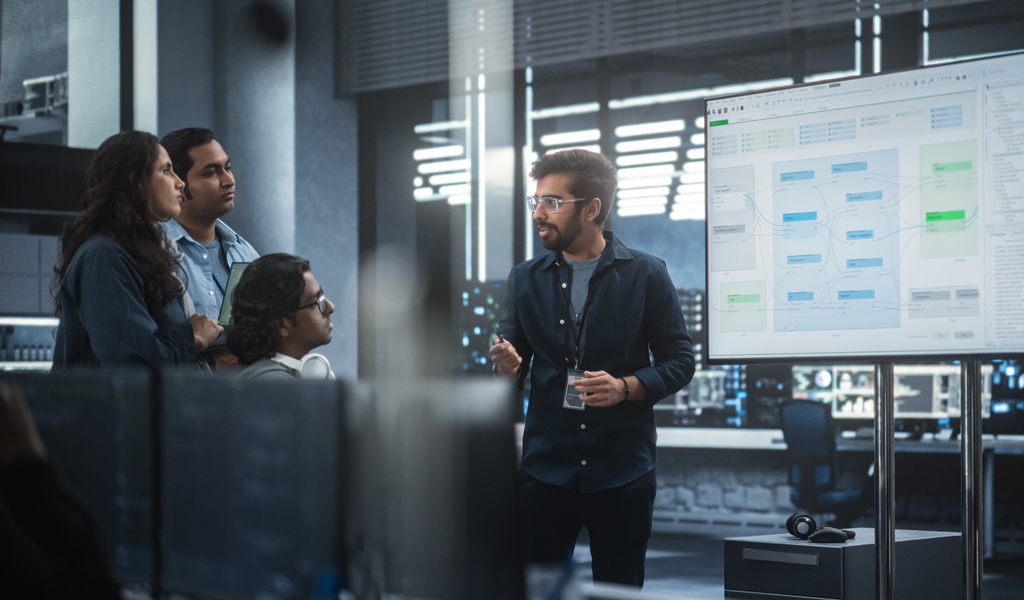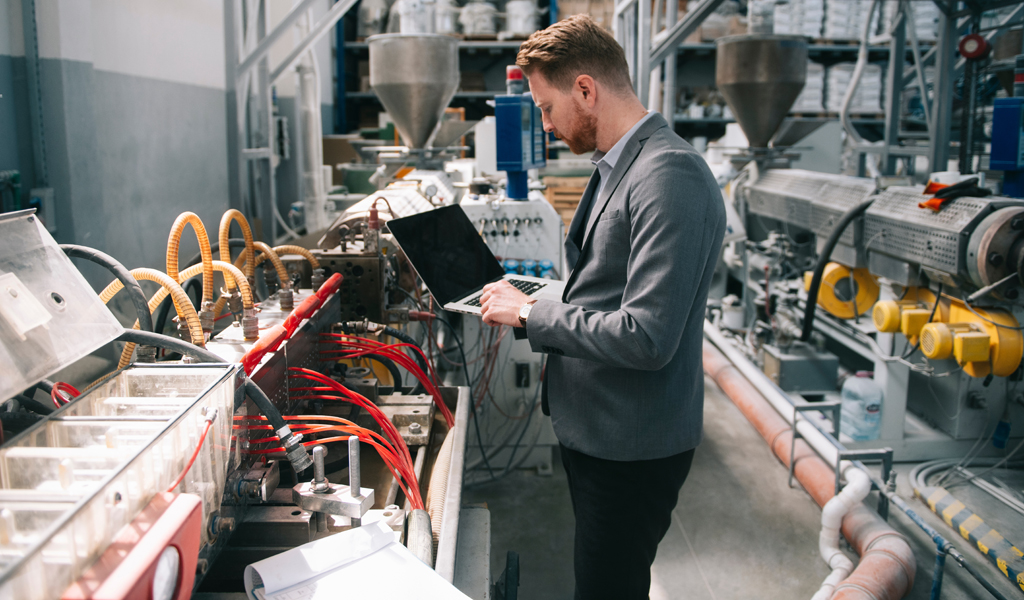
Innov'Consulting, supporting digital transformation to meet the challenges of energy
Nowadays energy is a challenge that requires constant attention, and the industrial sector is at the forefront of this battle. In France in 2020, the gross energy consumption of industry, excluding fuels, amounted to 32.2 million tons of oil equivalent (INSEE, Insee Première no. 1887, January 2022).
If this consumption is 9% lower in 2021 than in 2019 according to INSEE, due to the health crisis linked to the Covid-19 epidemic, energy is now at the heart of concerns in 2023. Gas and electricity, apart from being used as raw materials, remain the two most frequently consumed sources of energy, accounting for nearly 70% of total industrial energy consumption. And in 2023 gas and electricity market prices will be more than 10 times higher than in 2020, according to a press release from the French Ministry of Ecological Transition and Territorial Cohesion, Ministry of Energy Transition (Ministry site, 27/10/2022).

Innov'Consulting - The industry and the challenges of energy
However, the industry did not wait for the current geopolitical and economic context to take on the subject.
The energy transition has been ongoing for a few years. Between 2016 and 2019 in France for example, while industrial production increased (+3.9%), energy consumption decreased (-3.7%), which shows an improvement in energy efficiency in this sector (INSEE, Les entreprises en France, INSEE References Edition 2021).
In addition, in 2019, 38% of industrial companies with more than 20 employees made investments or studies to protect the environment, spending €1.7 billion in the process.
These investments in the industrial sector, like the €311 million in 2019 to limit greenhouse gases in France, are also in response to the action of the French government, materialized by the Energy and Climate law and the Tertiary Eco-energy decree.
Following COP21 and the Paris Agreement, the French “Climate Plan” generated the Energy and Climate law in 2019, which defines the ecological and climate emergency and the goal of carbon neutrality in 2050. Industry is impacted, through the environmental assessment procedure of industrial projects, and the inclusion of the carbon balance in financial support schemes. In addition, the 2019 Tertiary Eco-energy decree, which complements the “ELAN” law, aims to improve the energy performance of the French tertiary buildings. It concerns all buildings with tertiary activities of surface area greater than or equal to 1000 m², and therefore office areas of factories. This decree sets the targets for reducing energy consumption: 40% by 2030, 50% by 2040 and 60% by 2050, and companies must provide their energy use in the OPERAT platform operated by ADEME.
At last, the interest in energy self-consumption is also growing. While self-producers (individuals or companies) had to inject their electricity into the grid, they can now consume all or part of the electricity produced by their facility themselves and on the same site (evolution of the law in terms of electricity consumption). And in 2021, according to EDF, 83% of companies were interested in self-consumption, which allows both to change the image of the industry (virtuous position against global warming) and to meet the objectives of the Energy and Climate law. However, the profitability of self-consumption requires a sizing and monitoring of the daily use, to consume as much as possible of self-produced electricity. The objective is to sell as little surplus as possible to the grid, whose valuation is less and less attractive.

Innov'Consulting - Percall supports customers in the challenges of energy
With these energy challenges, digital solutions contribute to the achievement of industrial performance and consumption reduction targets.
Percall supports its customers in their digital transformation, in which energy management is a major pillar. Our teams bring their business expertise, as well as their software and technological know-how, to help decision-makers define their digital objectives with regard to energy, build their projects, and support them in steering these projects.
Percall supports its customers throughout the innovation process, by carrying out consulting activities with its Innov’Consulting department, and by deploying its software solutions based on our Plug Play Think vision.
Our solutions aim to make the right decisions about energy at the right time, to avoid drifts, anticipate, reproduce what worked well, and change the behaviors of teams in their uses to improve performance: digital is here at the service of the human. The goal is to provide real-time access to information, to efficiently visualize the status of the energy consumption of a site, a building, or a production line, and to also send to managers and operators alerts in case of anomaly or drift, to act immediately. And thanks to data collected over medium and long term, analysis, understanding, and forecasting are possible: this makes it possible to generate action plans to change behaviors and seek additional gains.
At last, Percall solutions allow energy information to be correlated with other data, such as production data like production orders and their planning, in order to make the right decision every time.
The scope is wide concerning energy, and we can address it through 4 main domains:
- Managing the consumption of sites and buildings
- Managing the consumption of production lines and calculating the carbon footprint of a product
- Controlling the consumption of general means (light, heating, air conditioning, etc.)
- Controlling the consumption of self-produced energy



